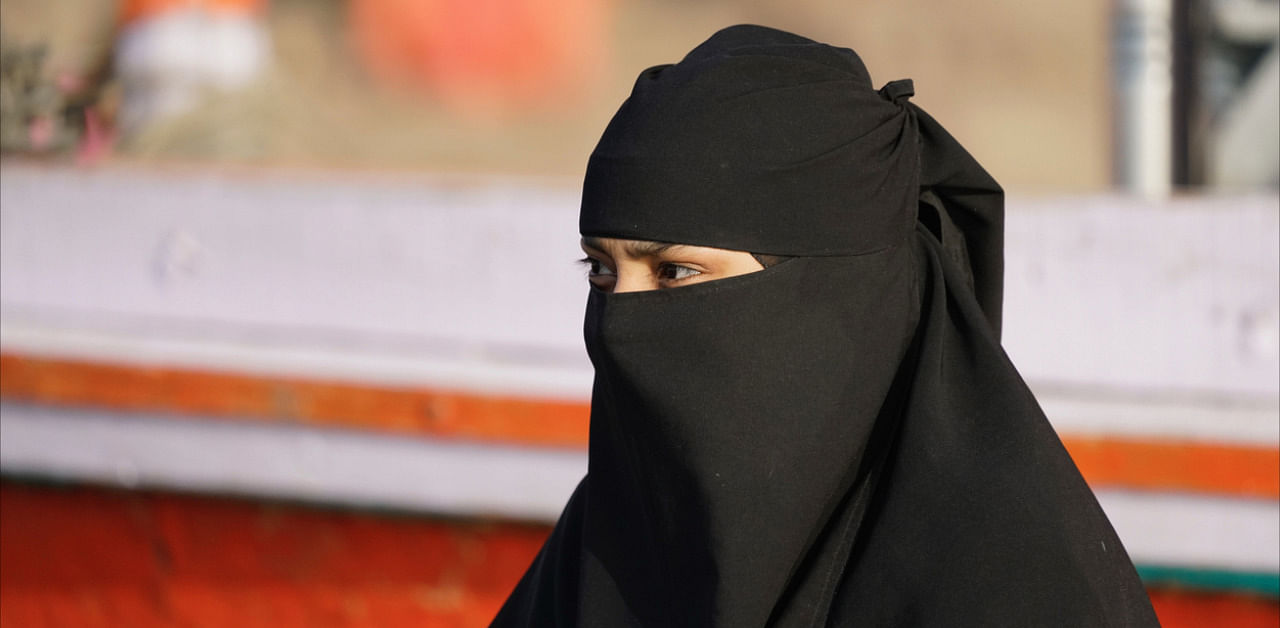
An elderly Muslim lady doctor and her daughter residing in the posh Gautam Nagar in New Delhi visited a nearby grocery shop during the lockdown period on April 11. They were turned away from it and insulted for being Muslims. An FIR was registered on April 14 against the shop-owners.
On April 21, one Gajanand Chaturvedi was arrested from Jaya Park in Mumbai for refusing to collect groceries that he had ordered from an online store merely because the delivery boy was a Muslim.
The redeeming feature in these incidents was that action was taken by the police when complaints were lodged, which is generally not the case. The police have usually been accused of being biased against the Muslim community in dealing with communal clashes. This has led to the Muslim community feeling unsafe and insecure in cities dominated by the majority community. When actor Amir Khan articulated this a few years ago, he was trolled. Incidents of lynching of Muslims in recent years and the role played by politicians and the police have amply demonstrated their bias.
A series of incidents targeting Muslims had prodded a group of former bureaucrats, called the Constitutional Conduct Group, to dash off letters to chief ministers and Lt Governors expressing their “anguish” and worrying that “these seemingly isolated incidents appear to be building up to an ostracism of Muslims.” They have called upon leaders to bring “the people of India together rather than allowing the deepening of fissures in our country.”
That the minorities, especially Muslims, are being targeted all over the country is an acknowledged fact. While political leaders spew venom against Muslims with impunity, those on the other side are swiftly taken to task for airing their views. Dr Kafeel Khan, a paediatrician in Gorakhpur, UP, was jailed under the draconian National Security Act for nearly seven months for allegedly delivering a provocative speech at Aligarh Muslim University in December last. On September 1, Allahabad High Court ordered his release as his speech actually gave “a call for national integration and unity among the citizens” and did not threaten peace and tranquillity.
When 30 students of Jamia’s Residential Coaching Academy in New Delhi qualified for the Civil Services recently, a private TV channel’s Editor-in-Chief tweeted a trailer of a show calling them “Jamia ke Jihadi” and saying that Muslims were “infiltrating” the Civil Services. Fourteen of those who qualified from the Jamia Academy were Hindus. Delhi High Court stayed the telecast of the programme; the Supreme Court initially preferred not to interfere but has now barred the telecast. The IPS Association and several IAS officers condemned the “communal and irresponsible” programme. They slammed the channel for the hate post casting aspersions on the indubitable impartiality and fairness of UPSC in the selection process.
The riots that took place in East Delhi in February last was a result of the incendiary goading of the rabble rousers. But the culprits who inflamed the riotous passions move around scot-free, with no action contemplated against them. When political leaders spew venom at a particular community, their party men get the hint in no uncertain terms. Attacks, innuendo and humiliation are hurled at the minorities with impunity under the cool assurance that no action will be taken against the perpetrators of the crime.
The bias against the Muslims was also evident when 29 foreigners who attended the Markaz of Tablighi Jamaat in Delhi were jailed on several counts. They were released when the Aurangabad Bench of Bombay High Court quashed all charges levelled against them on August 21 stating that “malice is inferable”. In a serious indictment of the government, the court held that “A political government tries to find a scapegoat when there is a pandemic and calamity, and the circumstances show that there is probability that these foreigners were chosen to make them scapegoats.”
The manner in which Muslims are treated in our country does not go unnoticed by the international forums across the globe. Taking cognizance of the treatment meted out to Muslims, the Organization of Islamic Cooperation (OIC) urged our leaders to take “urgent steps” to protect the rights of the minority Muslim community and put an end to the incidents of “Islamophobia” in the country. Countering the OIC’s sane counsel, the Union Minister of Minority Affairs Mukhtar Abbas Naqvi said , “Indian Muslims, its minorities, all its sections are prosperous and those people trying to vitiate the atmosphere of prosperity, they cannot be friends of Muslims.” “Secularism and harmony” is not a “political fashion” but a “perfect passion” for Indians, he added. Whatever that may mean, it is common knowledge that a large majority of Muslims live in ghetto-like clusters and by no stretch of imagination can they be categorised as a prosperous community.
The communal hatred that is gradually engulfing the nation has to be crushed with a heavy hand if we truly profess to be a secular and peace-loving nation. Political leaders spreading hatred through their acerbic tongues need to be bridled. The nation has been passing through trying times through these last several months. Protests and riots have taken their toll and so also the battle against Covid-19. The tourism sector has taken a beating, the economy is shrinking. The nation can ill-afford riots in the country. Ostracisation of minority communities negates the slogan “sab ka saath, sab ka vikas.”
The country’s image got a boost in recent years in the international arena, more particularly among the Gulf nations. It cannot now be allowed to be sullied. A nation can be prosperous only when all its citizens live in harmony and peace. Violence ruins nations. History bears testimony to this.
(The writer is a former Inspector General of Police, CRPF)